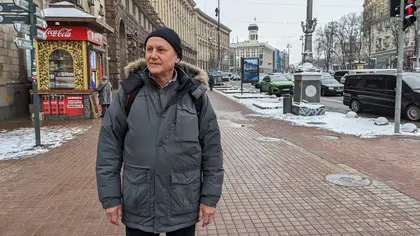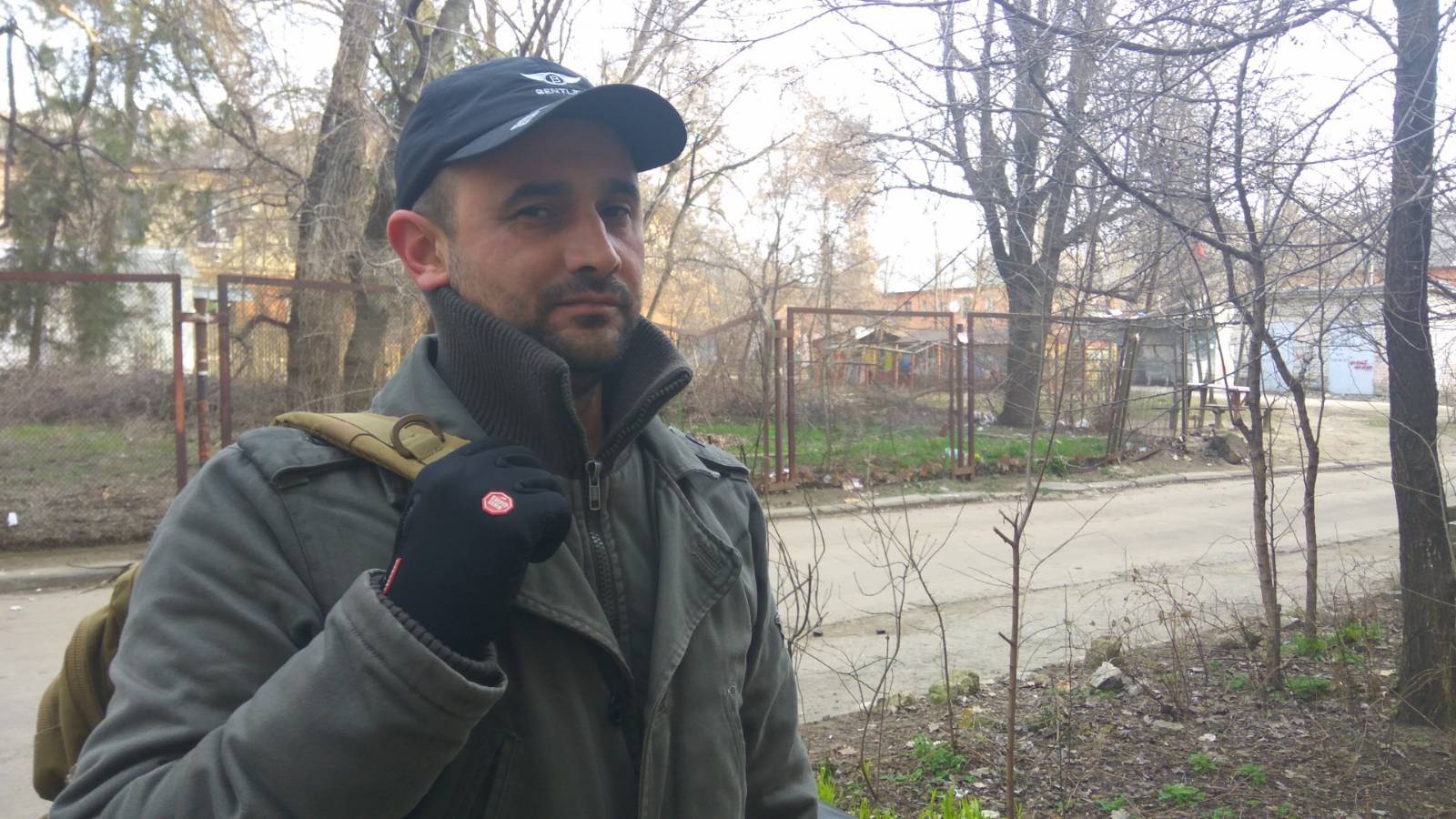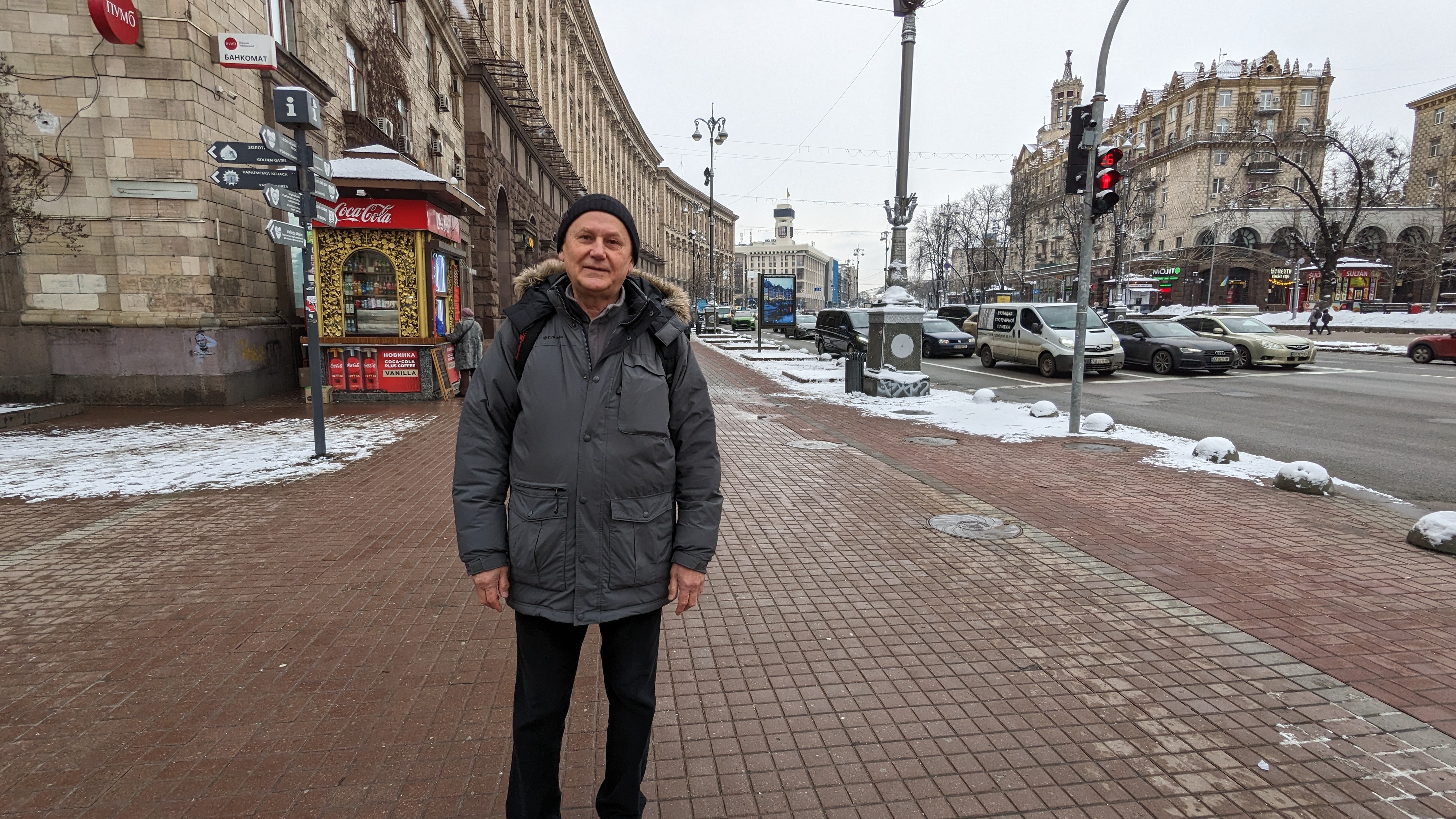On the day he was arrested, Serhiy Ofitserov had cycled to his father’s house in Kherson for lunch and a movie.
A few hours later four men arrived to arrest him and take him back to Russia where he remains, incarcerated in Moscow’s notorious Lefortovo Prison.
JOIN US ON TELEGRAM
Follow our coverage of the war on the @Kyivpost_official.
"If I could somehow convey a message to Serhiy," his 68-year-old father Hennadiy tells Kyiv Post, “I would say just one thing – 'your bicycle is waiting for you – so please come back'."
Hennadiy is now in Kyiv, in an attempt to do everything possible to get his son released through a prisoner exchange with the help of Ukrainian authorities.
The situation is complicated because until recently Serhiy had Russian citizenship - even though he’d lived in Ukraine since childhood and always considered himself a Ukrainian and a patriot.
"Serhiy was born in Kherson. In 1980, when he was four years old, the whole family went to [the Russian Far Eastern peninsula] Kamchatka – there were a lot of Ukrainians there then," says Hennadiy.
"In Kamchatka, I worked as an economist in the largest fish factory. Then I moved to a fishing collective farm and later to the central bank. In 1991, the Soviet Union collapsed, and the whole family panicked, not understanding what to do next. In 1992, I divorced my wife, and two years later I was back in Kherson. And my ex-wife moved with the children to the Russian city of Irkutsk.

ISW Russian Offensive Campaign Assessment, January 21, 2025
"Serhiy, who at that time was a citizen of post-soviet Russia, returned to independent Ukraine with his mother and stepfather in 1996 and has lived in Kherson since then. A Ukrainian residence permit was enough for him. He did not think about obtaining a Ukrainian passport – all these years, the Russian passport did not prevent him from living in the everyday sense and did not stop him from being a Ukrainian patriot. Serhiy began thinking about giving up Russian citizenship in 2021 and began to draw up documents for obtaining Ukrainian citizenship.
"Before the full-scale invasion, he worked as a sales manager in various Kherson companies and shops – from household appliances and plumbing to furniture. From the beginning of the occupation, we began to communicate more. But he did not talk about what he was doing – it was taboo. His nephew was participating in the Anti-Terrorist Operation [in Donbas], so I think they were engaged in partisan activities - passing information to the Ukrainian military and tracking Russian facilities. The only thing I know for sure is that he and his friends made Molotov cocktails.”
Serhiy used to move around the city with a temporary certificate he was given after the beginning of obtaining Ukrainian citizenship – he no longer had a Russian passport in his hands.
With time the number of Russian checkpoints in Kherson increased, and document checks intensified in [distal district] Ostrov where Serhiy used to live. Hence, his father insisted that Serhiy return to the city centre where he used to live.
"He would often come to my place for lunch or to watch a movie," Hennadiy continues.
"Serhiy came to visit me on Aug. 3. At about three o'clock, the doorbell rang. Before that, a neighbour came in – it was an ordinary day – so I didn't even look through the peephole. People came in: one with a weapon, three in civilian clothes. Serhiy was sitting at the table. They immediately approached him. They asked him – 'are you Ofitserov Serhiy?'
"He confirmed, and they put him on the floor. They brought the phone under his nose to unlock it. They spoke in short phrases. Everything happened quickly – in 10 minutes. I just stood and watched this.
"I thought about it again later – I have a surveillance camera hanging in my apartment, but it was turned off that day – so they knew it was off. They didn’t ask me for documents. And they didn’t go around other rooms – they weren't interested.
"So, they knew everything. They told him to get ready and handcuffed him in the hallway. They asked me just one question:' are you Hennadiy?' I said 'yes', so they ordered me to get back quickly to the apartment. I asked where to find him. They told me that he would come himself.
"I’m sure these people knew who they were after. They knew who I was and that my son was at my place. An interesting moment – we agreed to meet at 12 o'clock, but Serhiy called and said he would be late. So, these people were tapping our phones – they very often worked abnormally. That’s why I’m sure it was the FSB.”
After his son was arrested, Hennadiy looking for him throughout the city in all possible places of detention of prisoners, but to no avail.
For several months there was no information about his son. And only at the end of October, through one arrested Kherson citizen, who the Russians released, did the first information appear that Serhiy had probably been in the former head office of the National Police for some time.
"This man said there were no toilets in the room where they were kept, so all the arrested were taken outside once a day,” Hennadiy said. “Many people were tortured. Also, at the end of October, Serhiy’s mother got a call from a lawyer from Moscow, and that’s how we found out our son was in [Moscow prison] Lefortovo and needed some clothes. Immediately after the de-occupation of Kherson, I tried to talk to foreign journalists. I needed to convey the news to my son, at least through the press. And solve the issue of clothing.
"I went a lot through different Internet groups, including Crimean ones. When the Crimean bridge was blown up, I remembered two Kherson residents appeared in Russian press releases about that. And I thought the Russians were holding my son just in case – to put his name just in case something happened.
"And after some time, people started contacting me. I discovered the article under which he was convicted – number 361 of the Criminal Code of Russia: international terrorism; and there was a trial in Crimea on Oct. 7 or 9, and Serhiy was kept in quarantine for several weeks after the trial. So, he was officially convicted and transferred to Lefortovo in Moscow.”
After the start of the invasion, the Russian FSB reported on the prevention of a series of terrorist attacks in occupied Kherson and Zaporizhzhia Regions, writes Novaya Gazeta Europe. Cases were brought under the previously unused Article 361 ("an act of international terrorism"), which was introduced into the Criminal Code in 2016.
Maria Kravchenko, one of the experts at the Moscow-based non-governmental information and analytical centre Sova, believes that in terms of Russia’s "special military operation", anti-terrorist legislation will be widely applied because it is convenient to subsume part of this military operation under the rules on terrorism. And the statistics will only grow.
"In Kyiv, the Security Service of Ukraine told me to look in all areas available. That’s what I'm doing now – I want to turn to the Main Directorate of Intelligence of the Ministry of Defence of Ukraine, the Red Cross and the Office of the President," Hennadiy says.
"The Red Cross confirmed that Ukraine considers my son a prisoner of war. Now the Russian side must confirm this. But for Russia, he is their citizen, although he has a residence permit and a Ukrainian tax number.
"I do not doubt Serhiy will be able to return to Ukraine. I do not lose faith that my actions will help. And rationally, they [in Russia] also want someone to exchange. I read that [Ombudsman for Human Rights in the Russian Federation] Tatiana Moskalkova said they want to exchange not only prisoners of war but also civilians.
“I know media coverage helps in these matters – even if his photograph appears somewhere, they will understand this person has some value for exchange."
You can also highlight the text and press Ctrl + Enter












